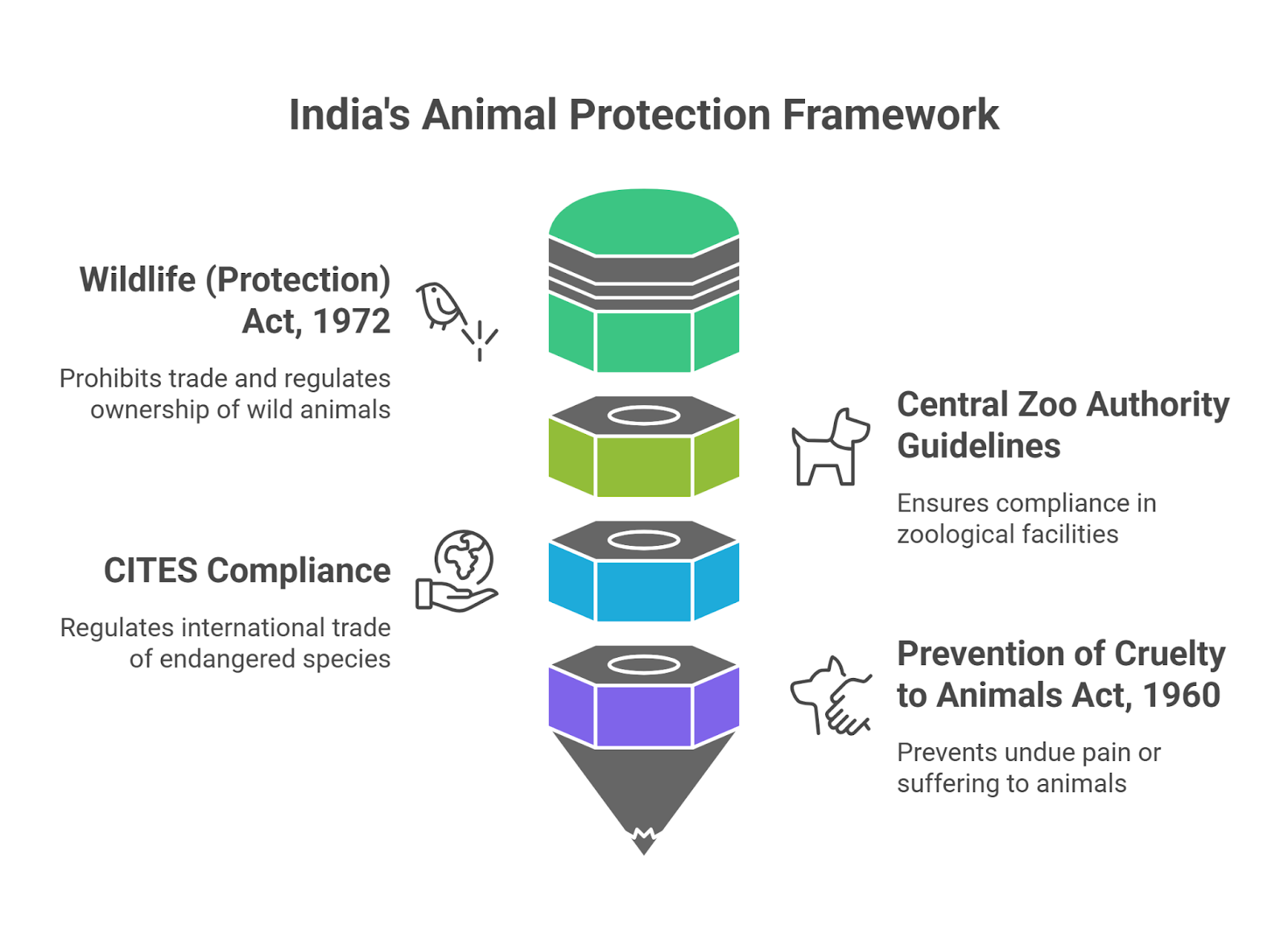Font size:
Print
Concerns Over Vantara Zoological Rescue and Rehabilitation Centre
Supreme Court sets up SIT to investigate Reliance Foundation’s Vantara over illegal animal acquisition
Context: The Supreme Court’s decision to set up a Special Investigation Team (SIT) to probe Reliance Foundation’s Vantara Zoological Rescue and Rehabilitation Centre in Jamnagar has sparked national debate. While Vantara presents itself as a sanctuary for rescued animals, allegations of illegal acquisitions, wildlife trade violations, and ethical lapses have raised serious questions.

Why are there concerns about Vantara Zoological Avenue?
- Animal Acquisition Practices: Allegations that elephants were relocated from temples and private owners without proper legal procedures. Claims of endangered species being imported in violation of the Wildlife (Protection) Act and CITES regulations.
- Location & Climate Suitability: Vantara is situated near a major industrial complex, raising concerns about pollution and an unsuitable climate for certain species.
- Financial & Ethical Questions: Accusations of money laundering, misuse of biodiversity resources, and creation of a “vanity collection” rather than a genuine rescue effort. The controversial relocation of a temple elephant named Mahadevi triggered public protests and religious backlash.
What are the implications of animal acquisitions?
- Legal Risks: Violations of the Wildlife (Protection) Act, 1972, and Zoo Rules can lead to prosecution and penalties. Breaches of CITES (Convention on International Trade in Endangered Species) may attract international scrutiny.
- Ecological Impact: Removing animals from their native habitats can disrupt local ecosystems and breeding patterns. Poor relocation practices may lead to high mortality rates, stress, and disease among animals.
- Ethical Concerns: Treating animals as status symbols undermines conservation ethics. Religious and cultural sensitivities around animals like elephants must be respected to avoid social unrest.
